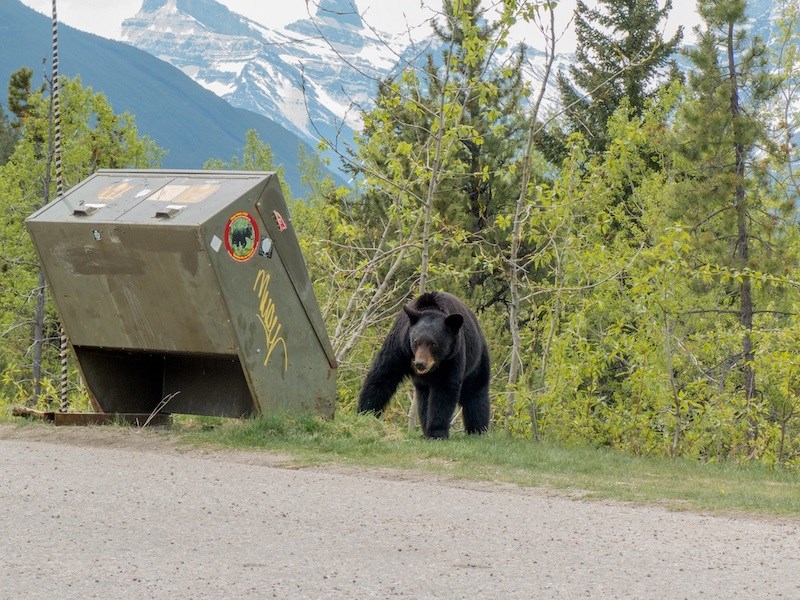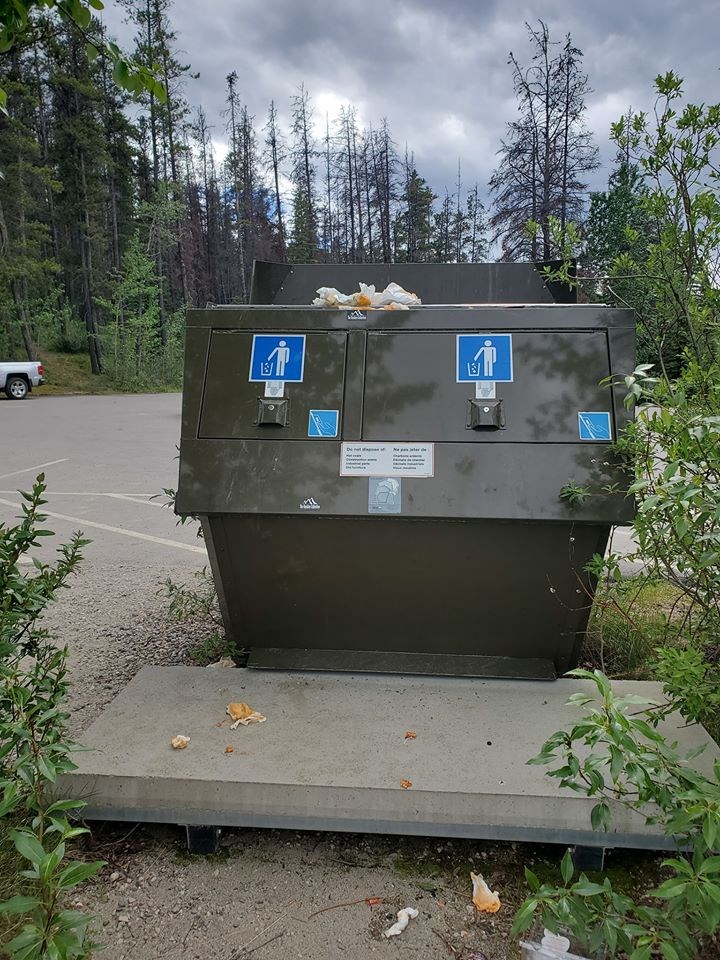
Joanne McQuarrie, Local Journalism Initiative Reporter | [email protected]
People are enjoying the great outdoors again, since the June 22 opening of some campgrounds in Jasper National Park.
But with great volumes of visitors can come mounds of garbage - and Parks Canada is reminding readers to take care of their trash.
The first few days of camping reopening were “a little slow”, said Steve Young, a spokesman for Jasper National Park.
But the two main campgrounds, Wapiti and Wabasso, have been close to capacity since then.
And the Snaring campground just opened two weeks ago and has also been ramping up gradually in use, to an average of 50 per cent capacity, Young added.
But along with fresh air, crackling campfires and the sounds of nature comes disposing of garbage, and in some cases, more diligence is needed.
Young pointed out that Parks staff have observed that in some cases, garbage bins are not being used correctly, and launched a social media campaign to encourage visitors to bring along hand sanitizer and to highlight the importance of placing garbage inside the bins.
"This is especially important in a park with a healthy wildlife population that could become habituated," Young noted.
"Food left unattended attracts bears and other wildlife. Anything that has an odour or could be considered food may attract."
There are a number of items you should never leave unattended, including coolers (empty or full), open or closed food, garbage and wrappings, dishes and pots, pet food and bowls, bottles and cans, and any item associated with food preparation.
"When people leave food out, bears and other species can lose their fear of humans," Young emphasized.
“Once an animal gets used to human food, it becomes a risk to public safety.
“By disposing of your garbage properly you are playing an important part in preventing the creation of habituated animals."

The design of Jasper’s garbage bins has helped control risks.
"The first bear-proof bins were installed in 1975, with improvements made in 1980," Young explained, and added the current bins were first installed in 1986.
"The mandatory garbage bins have played a huge role in the reduction of bear deaths in the park since the mid-70s."
Whatever the scenario, Young said the safety of visitors, employees and residents is the top priority of Parks Canada.
He said visitors and residents are responsible for their own safety and you can help keep others safe by not visiting if you are sick or if you were recently exposed to someone with COVID-19.
Visitors and residents are asked to follow all public health guidelines, encouraged to wear a cloth mask when you're closer than two metres from people and recommended to have your own COVID-19 hygiene safety kit, with hand sanitizer and disposable gloves.
Young said you need to be prepared to wait for your turn and that you may need to change your plans.
“Kindness and patience are key,” he said.



